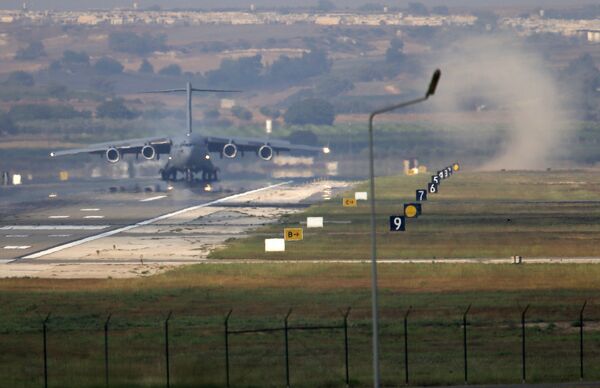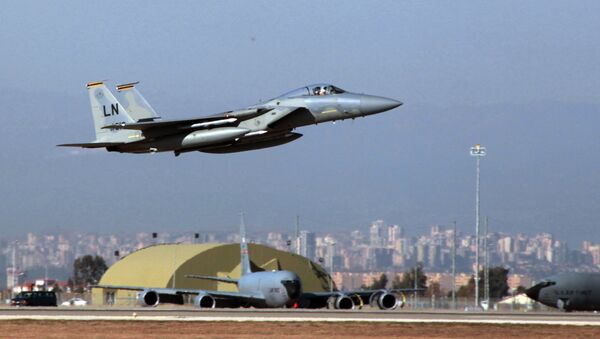Lombardi maintained that storing nuclear weapons in Turkey no longer presents any value to Washington due to geostrategic reasons rather than security risks.
"First and foremost, submarines stationed in the eastern Mediterranean and the Persian Gulf are still the best delivery means for nuclear armaments. They are more efficient in covering the zones that the nuclear arsenal Incirlik is meant to protect," he explained, apparently referring to the subs assigned to the US Fifth and Sixth fleets.
Earlier, the Stimson Center, a Washington DC-based non-profit, released a report, urging policymakers in the US to remove B61 nuclear bombs from Europe and strengthen conventional forces instead. Lombardi agreed that the US should transfer the nukes back home since the arsenal is costly to maintain and there are questions regarding its strategic efficiency.

First of all, an $8 billion life extension program for the B61 is currently underway. Earlier this month, the US National Nuclear Security Administration (NNSA) confirmed that the initiative had entered its final stage before mass production that is scheduled to commence in 2020. The program is meant to extend the life of these weapons for up to three decades.
Bilateral relations also play a role in these considerations.
"Although relations between Turkey and the US have slightly deteriorated … against the backdrop of a thaw with Russia, Washington and Ankara will still remain allies. Neither is interested in severing these ties. In this context, removal of nuclear weapons from the Incirlik base could be perceived as a sign of weakness," the analyst explained.


